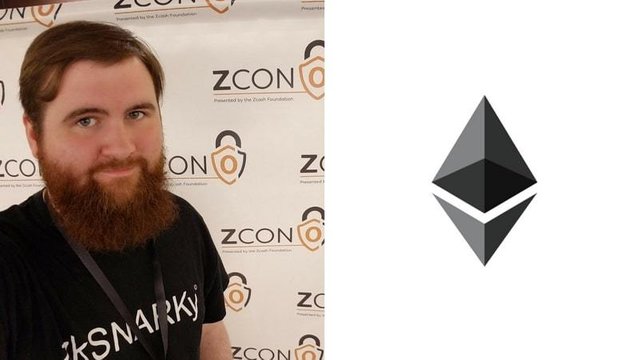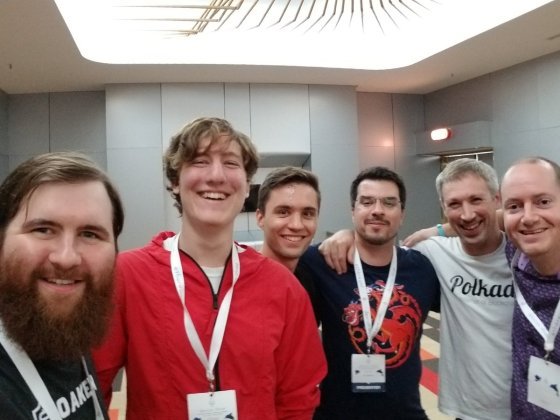Hudson Jameson: "Ethereum Is Able To Adapt To The Changes That Quantum Computing Will Bring"

Hudson Jameson is one of the main developers who organize the activities of the Ethereum Foundation, a non-profit organization aimed at improving the network.
Jameson is recognized as one of the most important figures in the governance protocol of Ethereum . Together with Vitalik Buterin and Jeffrey Wilcke, Hudson coordinates and executes bimonthly developer meetings involving all the main customer teams in the network. In these meetings, decisions are made about updates, improvements and possible bifurcations .
He currently divides his time between Oaken Innovations and the foundation. In addition, since 2015 he has been one of the main collaborators of activities such as Devcon . The fourth edition of the conference will take place between October and November of this year.
The developer is a true passionate about the Ethereum project and believes strongly in his ability to grow and adapt to the new challenges that constantly arise. Taking advantage of the third anniversary of the launch of Frontier , the first version of the network, Jameson gave us an interview to share a little more of his vision about the future of Ethereum.
Hello Hudson! It's great to have you as our guest here at CriptoNoticias. The first thing our readers would like to know is who are you and what are you doing?
Hello! Also for me. I work at the Ethereum Foundation doing a variety of things throughout the ecosystem, including the core meetings of Ethereum developers and moderating the Ethereum Improvement Proposals (EIP).
What is your role in the creation and development of Ethereum?
I do many team and community management jobs that help our developers so they can code more effectively.
What do you think about the possibility of changing Ethereum to a Proof of Stake protocol?

Changing to Participation Testing is something that has been on the roadmap since the beginning of Ethereum and it is a very promising development. The research teams are working hard to make sure that the change of Proof of Work to proof of participation is a success.
What is your opinion about forks (hard forks)? Are they necessary for the network to improve or hinder the path of evolution?
The bifurcations are simply software updates that have a negative connotation due to controversial issues that are sometimes linked to them. They are necessary to improve the platform and most of the updates included in the bifurcations are not controversial and they greatly help the software to keep up with the latest innovations.
Do you think that Ethereum's governance protocol is decentralized?
I think the Ethereum government is very decentralized. We have several groups that play a role in influencing decisions around Ethereum, including lead developers, EIP publishers, the Fellowship of Ethereum Magicians and influential members of the community in the chat rooms and on social networks.
How do you think the Ethereum government protocol can be improved?
I think we need more diverse groups and ideas that are part of the Ethereum government. I also believe that there is a need for better software and methods to help us identify trends around important or controversial issues. Sometimes it is difficult to determine what the community really wants.
Vitalik Buterin, one of the most important players in the development of the Ethereum network, recently said in an interview that he believes that quantum computing will greatly change the way distributed accounting technologies work at this time. What do you think about that? Can networks as we know them adapt or are they destined to be replaced?
I know that Ethereum is able to adapt to the changes that quantum computing will bring to the ecosystem because we always try to be at the forefront of innovation.
With more and more adoption of Ethereum thanks to independent projects such as Cryptokitties, the network seems to go through periods of high commissions and slow transactions more and more often. What is the Ethereum Foundation doing to improve that?
The Ethereum Foundation is a non-profit organization designed to support the development and dissemination of the Ethereum software, so it can not do anything directly to affect such things. However, what you can do is help fund and support teams that work to solve difficult problems such as network scalability.
How has the response to the implementation of sharding been in the community?
In general, the community has shown a favorable response to sharding as a scalability solution that has great potential. It is still a bit far from the actual deployment, but it looks very promising.
Why has the foundation taken so long to work on a scalability solution?
The Ethereum Foundation is a non-profit organization designed to support the development and dissemination of the Ethereum software, so it can not do anything directly to affect such things. However, what you can do is help fund and support teams that work to solve difficult problems such as network scalability.

The next edition of the well-known Devcon will soon arrive in the city of Prague, what can we expect from the Devcon4 in October?
The Devcon4 is going to be a spectacular event! This year we want to make the conference more interactive so that all attendees have the opportunity to learn, grow and build. We have received many comments from previous Devcons attendees to make the Devcon4 the best of all!
Finally, we would like to know what other projects are you currently working on?
Currently I spend a lot of time coordinating the next hard fork with the main developers of Ethereum and helping in the planning and operations around Devcon4. I love working in this great community!
Congratulations @chris10! You received a personal award!
Click here to view your Board
Congratulations @chris10! You received a personal award!
You can view your badges on your Steem Board and compare to others on the Steem Ranking
Vote for @Steemitboard as a witness to get one more award and increased upvotes!